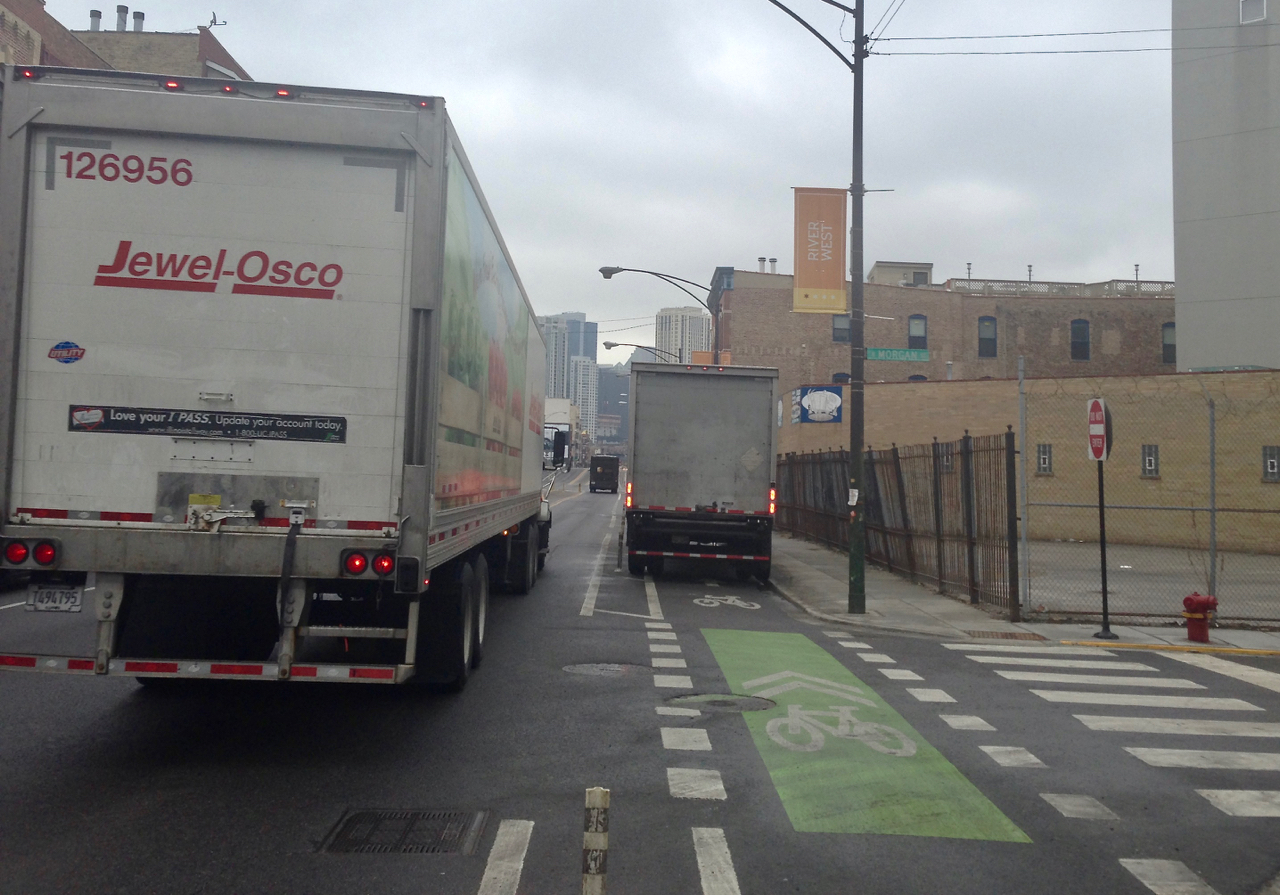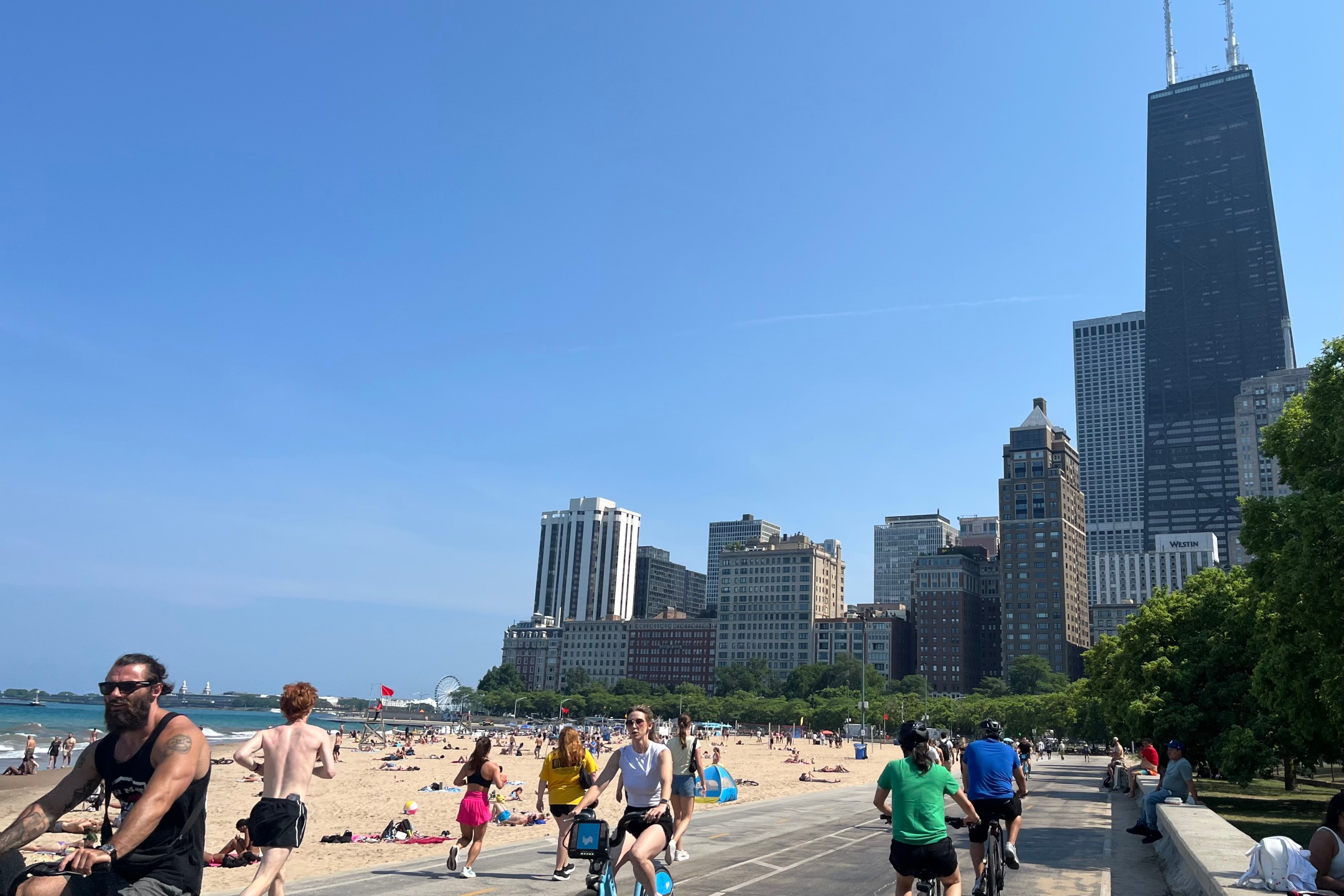A new ordinance was introduced to Chicago City Council yesterday that would require new safety-enhancing equipment on its contractors' vehicles, one of the recommendations in the Vision Zero Action Plan. The ordinance would require that certain privately-owned trucks that do business for the city get side guards, to prevent cyclists from falling under truck wheels, and mirrors that give drivers a better view of people around the vehicle.
The ordinance would require that any business that has a contract with the city worth $2 million or more, and requires the use of large vehicles weighing 10,000 pounds or more, add the equipment to the vehicles used to perform that contract.
Side guards are a requirement in the United Kingdom, the implementation of which has resulted "a 20 percent reduction in pedestrian fatalities and a 61 percent drop in bicyclist fatalities," according to the city's press release.
The ordinance requires that each contractor upgrade 25 percent of their vehicles used in a contract performed between July 1, 2018, and June 30, 2019. Every year after that, another quarter of the fleet used to perform a contract must have the upgrades. The full fleet used to perform a contract must have the upgrades after July 30, 2021.
When the ordinance would take full effect in four years it would still have caused a minor number of vehicles to be retrofitted with the equipment. The ordinance notably doesn't include any requirement for driver training, which is also a Vision Zero Action Plan recommendation.
It's unknown how many vehicles these rules would apply to if the ordinance was in effect currently, as CDOT didn't answer in time for publication. The rules do not apply to any truck that's not used in the performance of a $2 million or more contract, leaving potentially thousands of trucks on bike routes without any of the safety equipment. The state legislature would have to adopt its own rule.
The city intends to upgrade its own fleet with side guards and mirrors by 2026, the goal year to achieve zero traffic deaths. It's also unknown how many vehicles would receive the upgrades.
The ordinance has other rules that limit its effect. It appears to exclude the the trailer portion of a semi-truck (I've asked for clarification on this), and it, of course, doesn't cover trucks used in contracts worth less than $2 million. The rule, however, has the benefit of getting trucks to be upgraded that may be used for more than just city contracts, as many contractors will have more than one client.
Additionally, the city's head of procurement may grant waivers to the safety-enhancing equipment upgrade if they agree with the contractor that compliance would be an "undue financial hardship." Each waiver lasts one year, and the city can grant the waiver as often as they continue to agree. It's impossible to say how often the city might use this provision, but the role of politics in changing what it supposed to be an administrative task cannot be discounted.
Side guards are also a part of the sustainable safety program that is the foundation for the unique rules and designs in the Netherlands, where the European Union has mandated side guards for decades. The program's homogeneity principle also ensures trucks and bikes use somewhat different routes, or when they must share a street there is a physical separation or the street is designed to limit driving to 18 m.p.h.
While the Vision Zero Action Plan has multiple strategies to increase cycling safety, it doesn't address the constant exposure that cyclists have to truck drivers, who are often sharing the same lanes.



